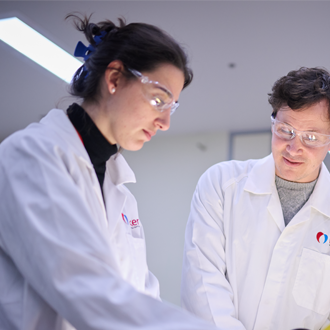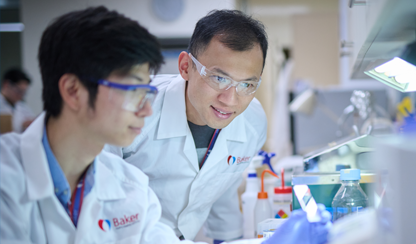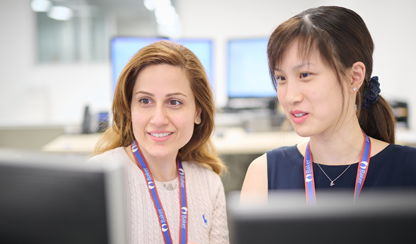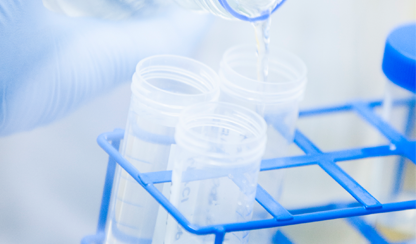
Auriane has nurtured her love for cell communication
When PhD student Auriane Drack was in high school in Montpellier, France, she wasn’t particularly good at remembering the stories taught during history lessons but found the stories of the human body very easy to recall — and there began her love of biology.
“Biology is like the story of the body,” she says. “I don’t remember dates and events of World Wars or historical events, but I found I could remember the story of what happened in the body’s cells and atoms very easily because it all made sense to me.”
Auriane’s interest in the biology of all living things took her to university to study Agricultural Science, before moving to northern France for her Master’s studies. She graduated from the University of Lorraine as an agricultural engineer, specialising in biotechnology and plant engineering, but not before travelling to Australia for a gap year.
During her stay in Australia, she travelled around the country, but she also did an internship at Peter MacCallum Cancer Centre. She went on to join the Baker Institute’s Cardiac Cellular Systems lab for another short internship, gaining valuable research experience before returning home. Her final Master’s industry placement was with luxury French cosmetic company, L’Occitane, which turned out to be a fortuitous appointment.
“When I was at L’Occitane, I was hired to look at how the plant extract that they use in their products can act on a cell’s exosomes, or extracellular vesicles (EVs), and I just fell in love with the field,” she says. “I knew I wanted to return to Australia after finishing my Master’s, so I looked up who was the expert in EVs in Australia, and learned it was David Greening at the Baker Institute, so I knew he was the one I wanted to do my PhD with.”
Auriane joined David’s Molecular Proteomics lab in 2021 as a Master’s student, where she has nurtured her love for cell communication.
“I am fascinated about the way our cells communicate using extracellular vesicles,” she says. “For my PhD, I’m using these tiny cell messengers from stem cells to help the heart repair itself. Take a heart attack, for instance. When you have a heart attack, there’s a lot of damage that happens to the cells, especially the cardiomyocytes — the beating cells of the heart. These damaged cells can’t split and so can’t recreate the new tissue that’s been lost.
“We think that using the stem cells’ communication system, we can tell these particular cells how to become healthy again.”
“It’s a very exciting area of research to be involved with.”
Auriane is co-chair of the Baker Institute’s Student Committee and an author on two published papers, including the first-named author on one. She received the 2023 Full Research Training Program (RTP) scholarship, the Millis Jackson Student Research Grant, and the GCI Women in STEM Award. Auriane was also a national finalist in FameLab 2024, a leading science communication competition and training program.





